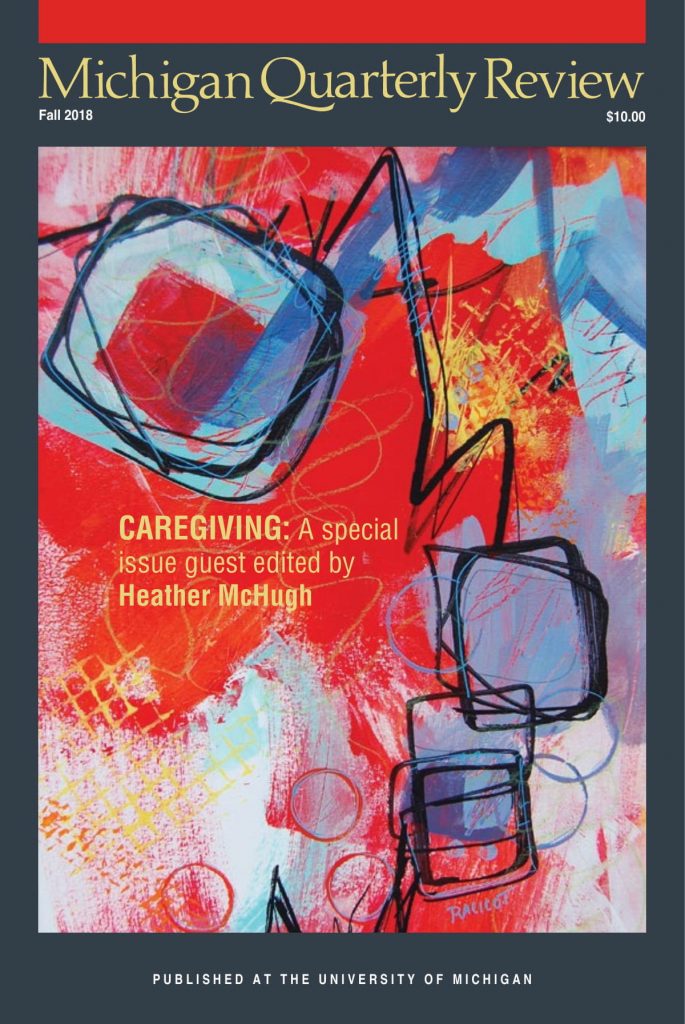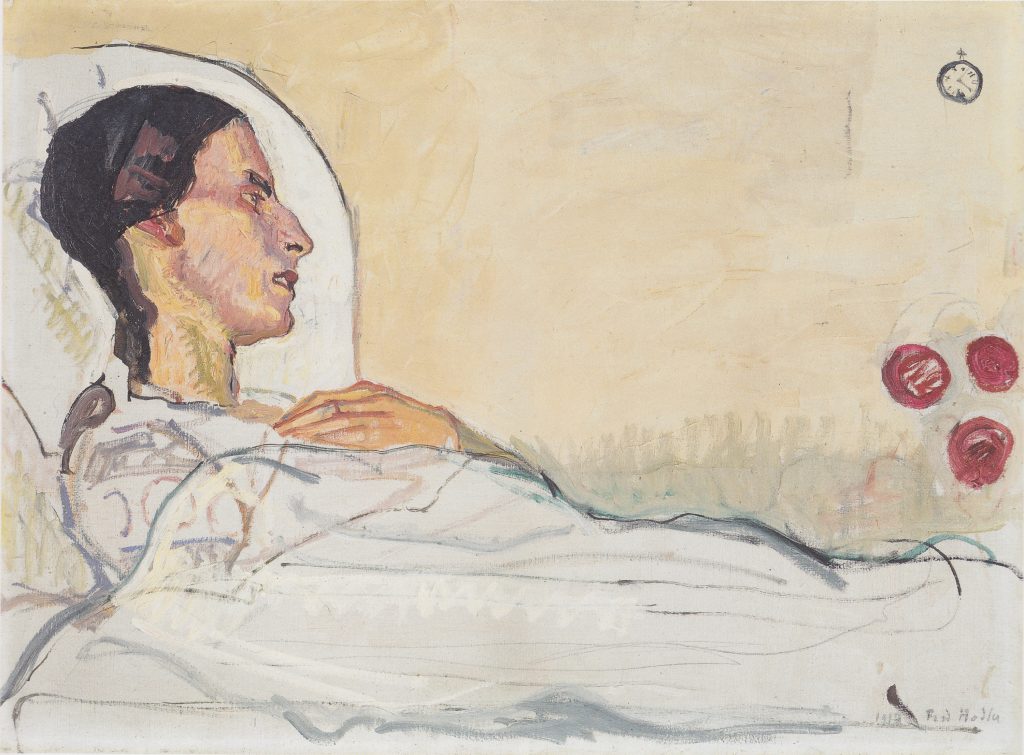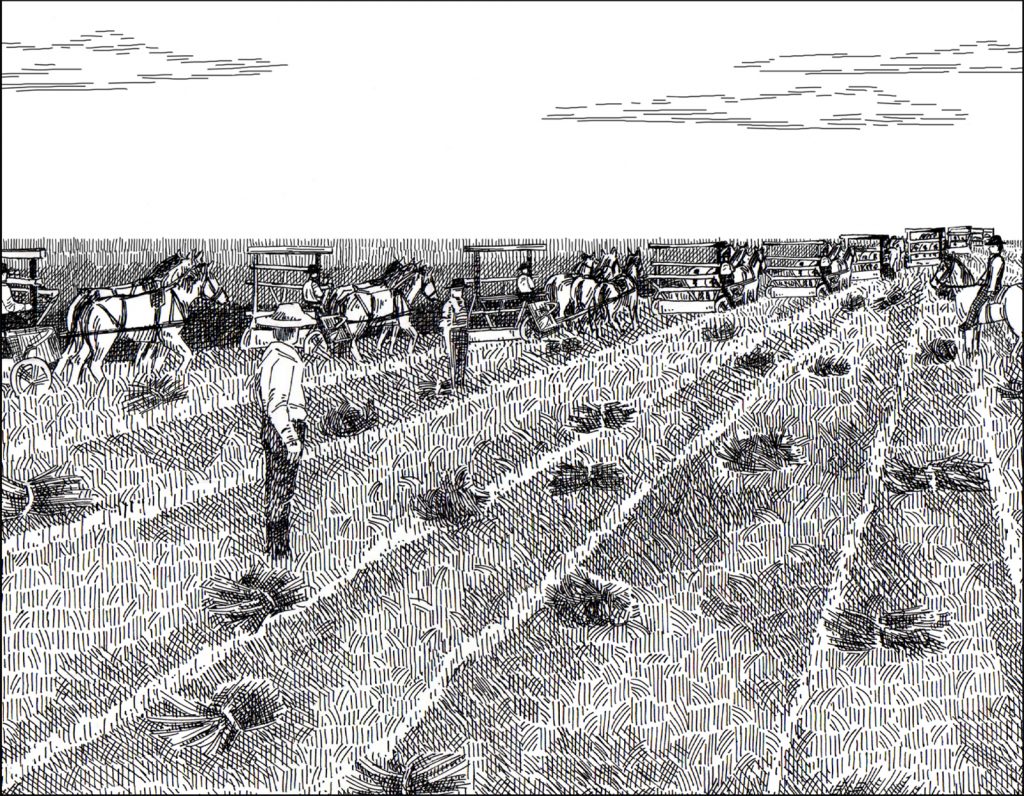“The Hard Burn of Traveling Light,” fiction by Christa Romanoksy, appears in the Fall 2018 – Caregiving Issue of MQR.
From the very first paragraph of this story, I was stunned by the masterful use of language. In “The Hard Burn of Traveling Light,” Christa Romanosky has crafted an unforgettable narrative about grief, which manages to be sublime, haunting, and at times darkly comic. Every simile in this compact story is lovely, strange, and laced with meaning. I was not surprised to discover that the author is also a poet. In “Hard Burn,” the bedpans in the hospital are “stacked like tires in a car lot,” the narrator’s dying mother “crawls into the chair like an alligator forced out of a swamp into a bathtub,” the narrator and her noncommittal Italian lover sleep “wrapped together like trash overtop a flood plain.”
In a lesser writer’s hands, the narrator’s defiantly dying mother — curt, harsh, refusing her meds, staring directly into the sun — could have easily become the story’s focus. But in Romanosky’s, the story belongs to the narrator, Ana. Seamlessly interspersed with scenes of her mother’s unravelling, we see Ana’s attempts to escape her grief (by refusing to shave her body hair, or by hopelessly trying to wrangle her lothario boyfriend), as she betrays herself in this futile process.
All four characters here are overwhelmingly human — compelling because of, not in spite of, their shortcomings and failures, their frustrations and cruelties, their imperfect ways of communicating love and tenderness toward one another.
–Ashley Whitaker, MQR Staff
They cut off my mother’s breast at 8:30 a.m. on a Tuesday, and from the lobby, we watch the low-res screen in the waiting room, color-coded for which stage of surgery she is currently in. “Still surgery,” my father says. But then it is over, and her breast, separated from the outer skin, the inner muscle, is sent to laboratories, where it will be cross-sectioned, examined, eventually discarded into a red bucket labeled hazardous waste with all of the other patients’ taken body parts. Before being intubated, she’d asked the surgeon—a stout, arrogant man—if they could return her breast afterwards. “I want to keep track of what’s missing,” she said.
Her hair is wide like a Van de Graft generator. Her PICC line is disconnected, dangling like bait. She was diagnosed with DCIS, what she calls Doing Chemo Is Stupid, fifteen years after the original bout of breast cancer. In elementary school, right around the time my mother was going through chemo for the first time, losing her hair in limp handfuls, I was gaining body hair—thick, coarse, unhideable. I lifted my arm and there it was, gawking. Changed for gym class and instantly blushed. I had not yet been introduced to razors, to removal, to loss. My mother was a class helper that year, and we built special glasses to watch the solar eclipse, out of cereal boxes, foil. Mrs. Bailey kept saying, “Look, class. Look at what the moon is doing!” And my hairless mother in her turban stared straight at the sun without blinking. Ten, twenty seconds went by before Mrs. Bailey grabbed my mother’s face and said “You’ll go blind,” and my mother said “That’s the plan,” but then finally looked away, back to the asphalt playground where twenty-five fourth graders stood in bright winter coats, blinking and sharing the pinhole cameras, awaiting the moment of totality, the moment when the sun, for just an instant, was deleted from the universe entirely.
~
At home, my mother refuses to take her medicines, and we coo, sweet talk her into her Abilify, her Tamoxifen, her Xanax, which she cheeks and feeds to the houseplants, buries in the compost. She opens her stack of get-well cards, most of them addressed to a Mrs. Doug Groosky, tosses each envelope after opening. “I don’t even have a first name. They’ll write Doug’s wife on my grave,” she says. My father is quiet on the sofa, finally replies, “Well what’s so terrible about that?” Then later, escalating, “I’ll give you whatever you want, Ellen. You want a divorce?” And my mother replies, “Don’t make promises you can’t keep.” And this goes on for quite some time before they both are soothed back to silence by the television news. My mother asks me if I’ve been screened, if I do self-exams, reminds me that I am high-risk, that I am a lit fuse. I stop shaving, put the razors in the cupboard, the cans of shaving cream, stacked like dynamite, beneath the sink. I want to see what’s left of me.
When I call Vigo, he answers with a “Yellow,” in a thick Italian accent. “Do I sound American?” he jokes. When I go to him, I kiss him like a starving junkyard dog, like a plane crash survivor. “Touch me,” I say. “Choose me.” He is a coin; I never know which side he’ll land on. And I believe that if I am just patient enough, generous enough, he will eventually pluck the other lovers free, like grey hairs, like poorly wired appliances. All around us — the dissected body parts of machines: their engines, tubes, like a liver, a heart. “These things make sense to me,” he explains. “People, not so much.” We undress, fall asleep wrapped together like trash overtop a floodplain, but overnight, I drain from his arms, leak into the crevices of his house, like dew, like mold. When my mother asks where I go some evenings, I tell her that I am simply, like everyone, like the moon, following the path that was laid out before me. “What doesn’t bend breaks,” I say, and she nods, says, “Everyone deserves to be loved.”
To continue reading, purchase MQR 57:4 or consider a one-year subscription. This story appeared in the Fall 2018 – Caregiving Issue of MQR.

Image: Hodler, Ferdinand. “Valentine Godé-Darel in hospital bed.” 1914. Oil on canvas. Kunstmuseum Solothurn, Switzerland.
Christa Romanoksy is a native of northern Appalachia. She was a 2017–2018 fiction fellow at the Provincetown Fine Arts Work Center, and a 2018 Writer-in-Residence at the James Merrill House. Her work has appeared in Glimmer Train, the Kenyon Review Online, The Massachusetts Review, the Missouri Review, and elsewhere. She currently teaches creative writing and STEM workshops to elementary students through various programs.




